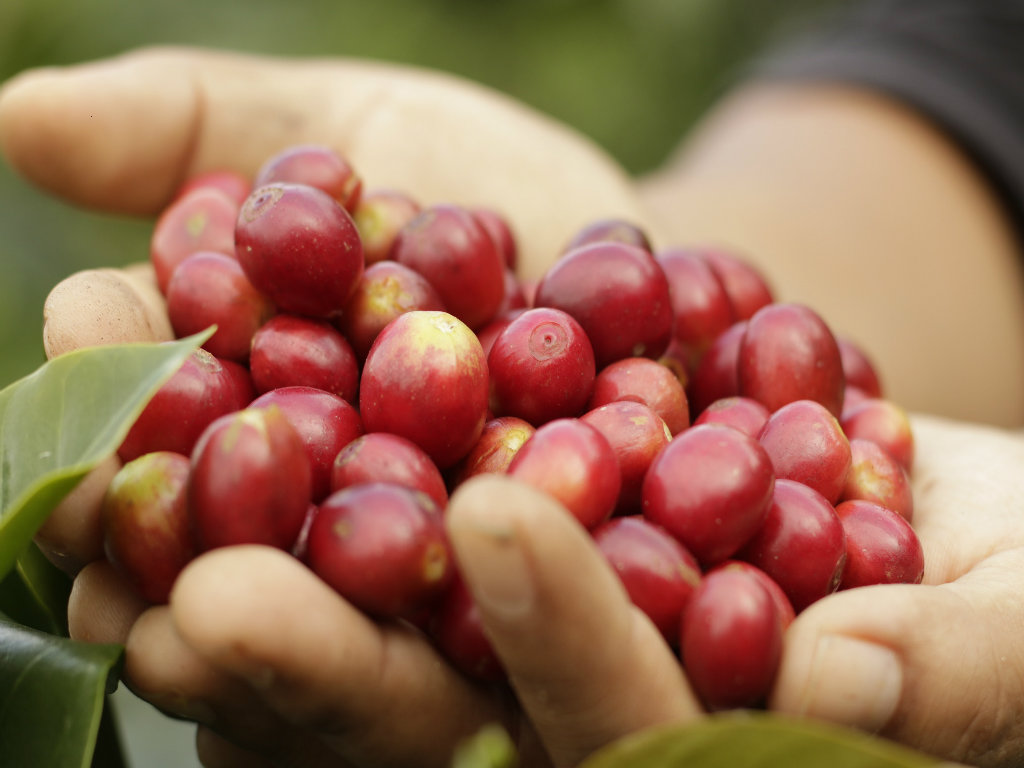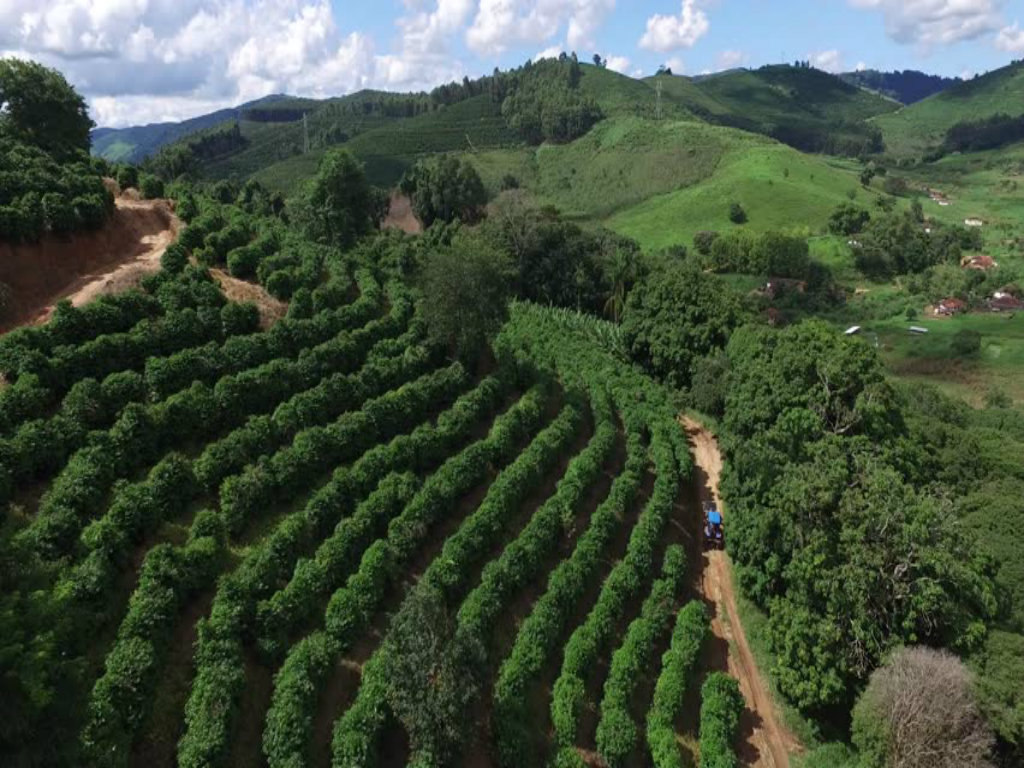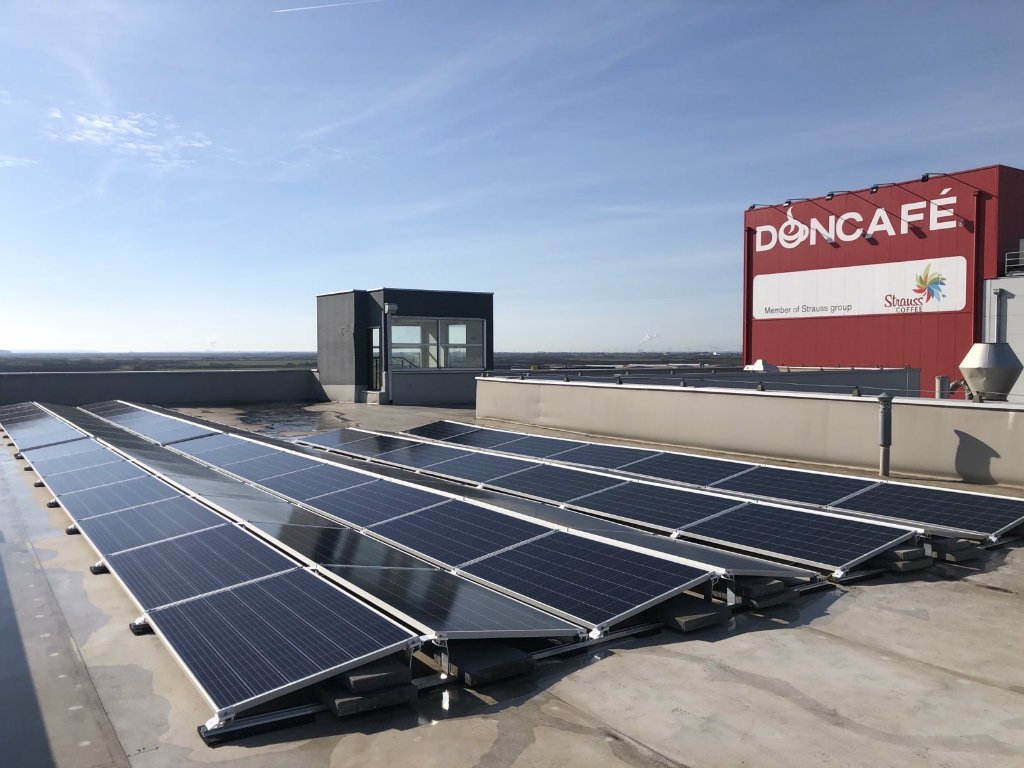Which fruits of the soil do we use most frequently?
Source: Promo
 Monday, 12.10.2020.
Monday, 12.10.2020.
 13:58
13:58
 Monday, 12.10.2020.
Monday, 12.10.2020.
 13:58
13:58
(Photo: Pixabay)

Coffee beans don't grow in the same areas as wheat and other grains, but exclusively in the tropical belt, on the mountains of Africa, South America and parts of Asia. The climate there is suitable for the growing of this fragile plant, which needs a lot of moisture, but not direct sunlight. The shades of palm trees are beneficial to its growth. It's interesting that coffee is actually fruit, with two beans inside one berry. The pulp of a ripe berry is very sweet, and the coffee flower smells like jasmine and lives for only two weeks. The Robusta variety is characteristic of lower altitudes, whereas the Arabica variety grows on higher altitudes, from 1,100 to 1,900 meters, making it more exposed to sunlight. It has been proven that the beans grown at a higher altitude have a better aroma and taste. Robusta is easier to grow, because it is more resistant to external conditions. It can be grown in hot and humid areas with temperatures of over 30 degrees Celsius. The largest producer of coffee in the world is Brazil, with 80% of the Arabica production. The largest quantities of Robusta come from Vietnam.
Arabica and Robusta are the two most popular commercial varieties of this plant. While Robusta makes for a fuller taste, Arabica has the aroma, so most global consumption concerns Arabica, because its acidity is greater and the flavor richer and more sophisticated. That's why it's considered one of the best kinds of coffee. Arabica has the greatest potential when it comes to the aromas it has compared to Robusta, thanks to which it is in the 100% category, because it alone can make the necessary balance in a product. In Serbia, coffee aficionados can begin their day with the best quality Doncafe Single Origin coffee, made of 100% Arabica from Uganda, Honduras, Brazil or Columbia. Robusta contains more caffeine and less acidity and is used to get different flavors of coffee and create new blends. One of them is Doncafe Minas, a mixture of the Brazilian Rio Minas Arabica and select Robustas, mostly imported from India, Vietnam and Africa. The wide range of blends fits various tastes, so consumers can choose which aroma wakes them up each morning.
(Photo: Pixabay)

Strauss Adriatic and their Doncafe brand are dedicated to harmonizing their operations with the principles of environmental protection and aim to reduce the consumption of the natural resources they use. The waste produced during coffee bean roasting is used for heating, thanks to a hybrid furnace they've made. They've also installed 180 solar panels on the roof of their factory and they use rainwater in the production process and for the irrigation of green areas.
Back in 2013, they set four key parameters and they've already exceeded the goals they set: they've reduced the emission of greenhouse gases by 10%, the municipal waste is reduced to only 18%, water consumption has been reduced to 78%, and energy consumption to 56%.
(Photo: Milan Živković)

Single-use plastic products, such as cups and straws, are no longer used. They have installed a press for plastic bottles, and individual waste baskets in offices have been replaced with waste sorting ones. With the implementation of electronic processing of paperwork, the printing of paper has largely been reduced. They are doing all this in order to leave a “greener” planet to the future generations, one which will be able to preserve all its flora and fauna.
Companies:
 Strauss Adriatic d.o.o. Šimanovci
Strauss Adriatic d.o.o. Šimanovci
Tags:
Doncafe Single origin coffee
single use plastic products
solar panels
paper printing
coffee at home
renewable energy sources
Arabica
Robusta
Rio Minas Arabica
Doncafe Minas
coffee roasting waste
Comments
Your comment
Most Important News
Full information is available only to commercial users-subscribers and it is necessary to log in.
Follow the news, tenders, grants, legal regulations and reports on our portal.
Registracija na eKapiji vam omogućava pristup potpunim informacijama i dnevnom biltenu
Naš dnevni ekonomski bilten će stizati na vašu mejl adresu krajem svakog radnog dana. Bilteni su personalizovani prema interesovanjima svakog korisnika zasebno,
uz konsultacije sa našim ekspertima.


 Izdanje Srbija
Izdanje Srbija Serbische Ausgabe
Serbische Ausgabe Izdanje BiH
Izdanje BiH Izdanje Crna Gora
Izdanje Crna Gora


 News
News






